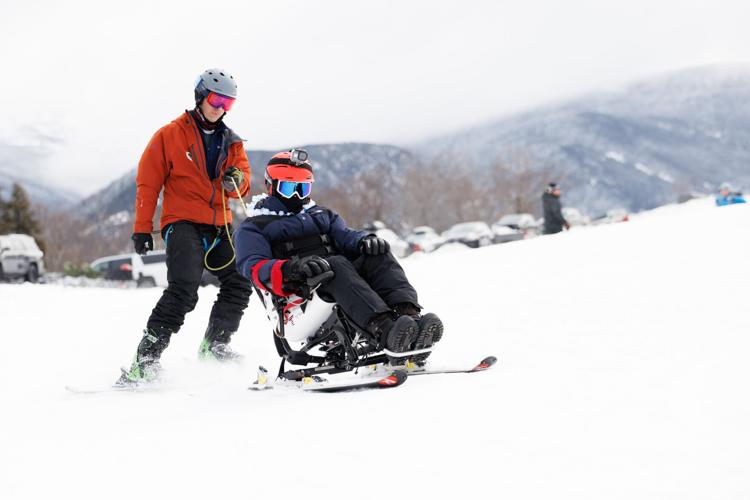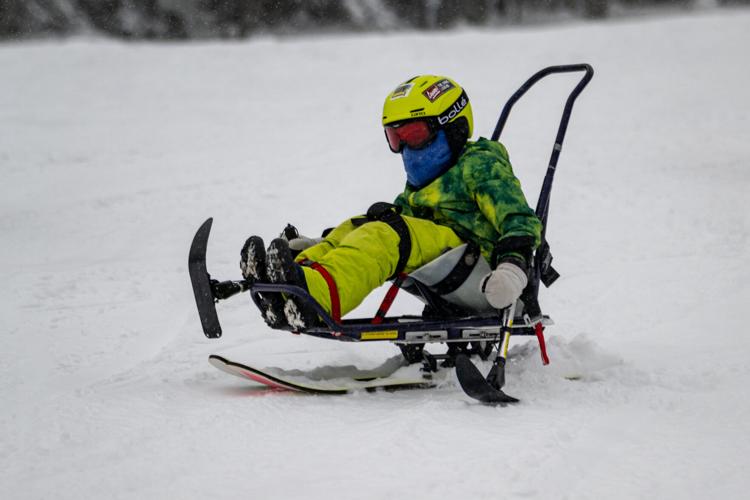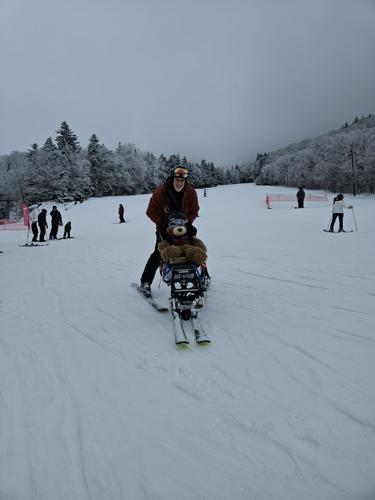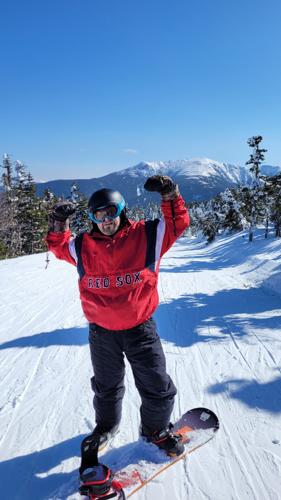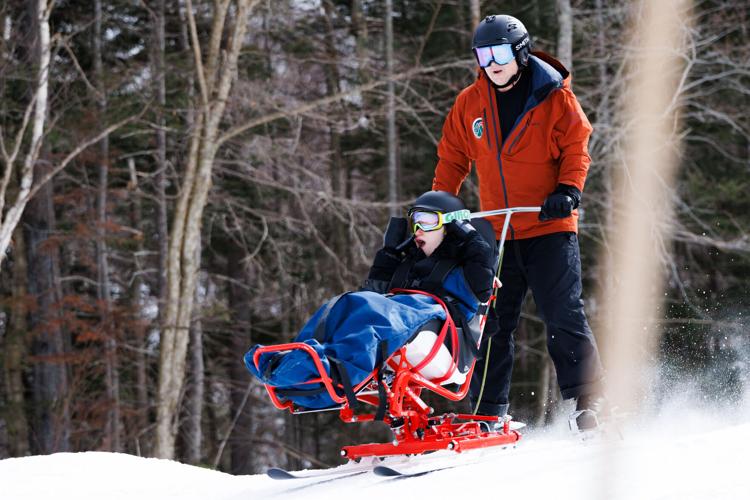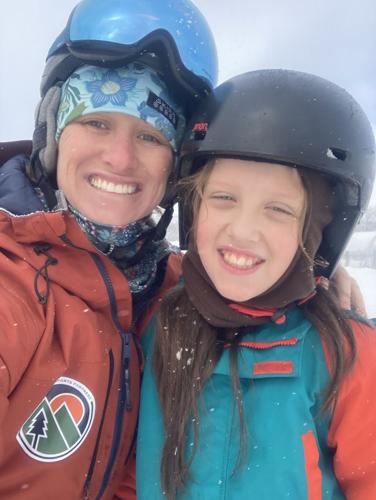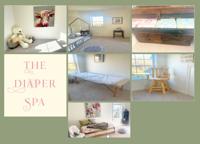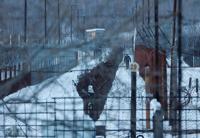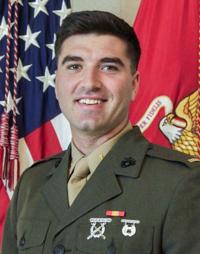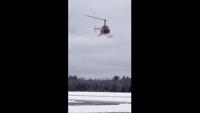Healthy communities make people feel connected to each other and part of something larger. I was reminded of this fact at a morning lesson with Adaptive Sports Partners at Cannon Mountain last weekend.
“I really appreciate the community building that comes from our programs,” said Executive Director Kelly Starr. “I really appreciate what the organization brings on a broader level outside of the skill-based side of things.”
According to its mission statement, Adaptive Sports Partners strives to “empower individuals with disabilities, in the North Country of New Hampshire and Northeast Kingdom of Vermont, by building community, confidence, and skills, through sport, recreation, and adventure.”
The ski and snowboard program offered at Cannon Mountain serves athletes with various disabilities, including physical, developmental, emotional and behavioral, by providing a setting that’s accessible to each person.
Starr noted how the program’s partnership with Cannon has been pivotal to the program’s success. “They’ve been amazing partners,” she said. “They have great values in terms of accessibility, and they know that our expertise and our instructors are the ones that can provide it.”
Arriving at the mountain about 9 a.m., I met a group of volunteers in the Peabody Lodge. Here, instructors are assigned athletes for morning, afternoon or full-day sessions. On this Saturday, seven full-day lessons were on the books.
While I waited for my lesson to begin, Cannon’s program manager, Natasha Dalton, went over the varying pieces of equipment that instructors might employ for a lesson.
She pointed out a variety of sit-skis, or a chair (known as a bucket) mounted on either one or two skis. For this type of apparatus, the athlete might use a pair of handheld outriggers, or poles with small skis attached to the bottom, which assist with turning and balance.
A mono-ski might be used by someone who doesn’t have the use of their legs but has a fair amount of upper body and core strength, allowing for more independence on the hill. The Mountain Man apparatus is a specialized bi-ski for someone who might not have as much control and is eager to get out simply for the experience.
Adaptive Sports Partners also has a tetra ski, the world’s first sit-ski for athletes with complex physical injury, which allows the athlete to turn independently and manipulate speed through the use of a joystick or by blowing through a tube attached to the bucket.
Adaptive teaching
“I think what drives me is seeing day in and day out what a difference our program makes in every individual’s life,” Dalton said. “And it ranges from our athletes to our volunteers and kind of giving people something to look forward to week in and week out.”
I spent the day out on the lower slopes of Cannon with volunteer instructor Mark Pichette and a first-timer to the program, a 15-year-old snowboarder from southern New Hampshire. Pichette, also a snowboarder, has been volunteering on the weekends for the past three seasons.
On the Tuckerbrook Quad chairlift, Pichette shared his technique for working with new athletes, some for the first time.
“When I go out, I’m hands off a little bit at the beginning and I kind of see what’s going on,” he shared. “You get a lot of lift time with the athletes and so you get to chat with them and see if they want feedback, if they don’t want feedback, and how we can deliver feedback.”
The three of us took a few runs off the Tuckerbrook chair, working on some fine skills, such as how to use the edges of the board to carve.
With soft packed powder, the conditions couldn’t have been better for learning new tricks. Our athlete even took advantage of the small jump line in the Huckerbrook terrain park. I recognized instantly his youthful eagerness to progress, an enthusiasm for snowboarding that will spark a lifelong passion for the sport.
For the second half of our session, we popped over to the Eagle Cliff chairlift for some longer runs on wider trails. Here, we met up with Matt Jeralds, a previous Adaptive Sports Partners program manager who now works for NFI North, a community-based mental health program that services the whole state. Jeralds helped organize the lesson for our teen athlete.
“I like to use recreation to help people,” he said. “There’s a lot of kids I work with who get stuck in a rut. They might not be so successful in school, they’re having a tough time at home, they think everything’s against them. And then for them to come out here and have an opportunity to succeed. It’s very fulfilling to see.”
Working in the mental health field, Jeralds knows how trauma can impact someone’s learning ability, so a typical group lesson might not be the best environment for that person. “The adaptive program can give them that extra help that they might need.”
I rode the chairlift with my athlete, and we talked about his experiences with snowboarding. Although this was his first time participating in the program at Cannon, he’s been snowboarding for roughly a year already.
“It’s better for me, because I’m not alone” he said, “You guys are more experienced than me, so I can get more tips and tricks.”
He wanted to know how long I’ve been riding and whether I hit any features in the terrain park. “At my age, I think my days of progression are behind me,” I said, and we laughed.
“I think working with people who are testing your limits and who are maybe doing it for the first time, and seeing people’s faces when they come in and they do something they didn’t think they could do,” Pichette said.
Testing your limits
“Working with people and seeing people progress, and giving back and seeing people grow. There’s something magical about that.”
Back inside, I ate lunch and watched a 4-year-old athlete sleep on a wooden bench in the lodge, his head resting on the lap of an oversized teddy bear, an Adaptive Sports jacket draped over him.
There really is something magical about that.

